WNS is a warm, safe, and nurturing environment fueled by a dynamic atmosphere of collaboration. Our students have compassion and kindness for one another. WNS students understand that they are growing up in a wonderfully diverse and pluralistic world. I am inspired by what they bring through the doors every day!
Elementary School
Nurturing students’ intellectual, social, emotional, and physical development
On any given day, WNS students are makers, thinkers, entrepreneurs, interpreters, observers, and investigators. At every developmental level, core academics blend seamlessly with specialized subjects, providing structure for ideation, creation, and collaboration. The foundation of our program is our approach to social-emotional learning and support. At WNS, every student is heard, seen, and known by their classmates, teachers, and community. Our custom-built social learning curriculum, along with Responsive Classroom and Developmental Designs, creates a supportive environment for students to reflect, grow, and develop as learners.
Welcome To The Elementary School
Tasha Jackson-Jones
Director of Grades 1-4
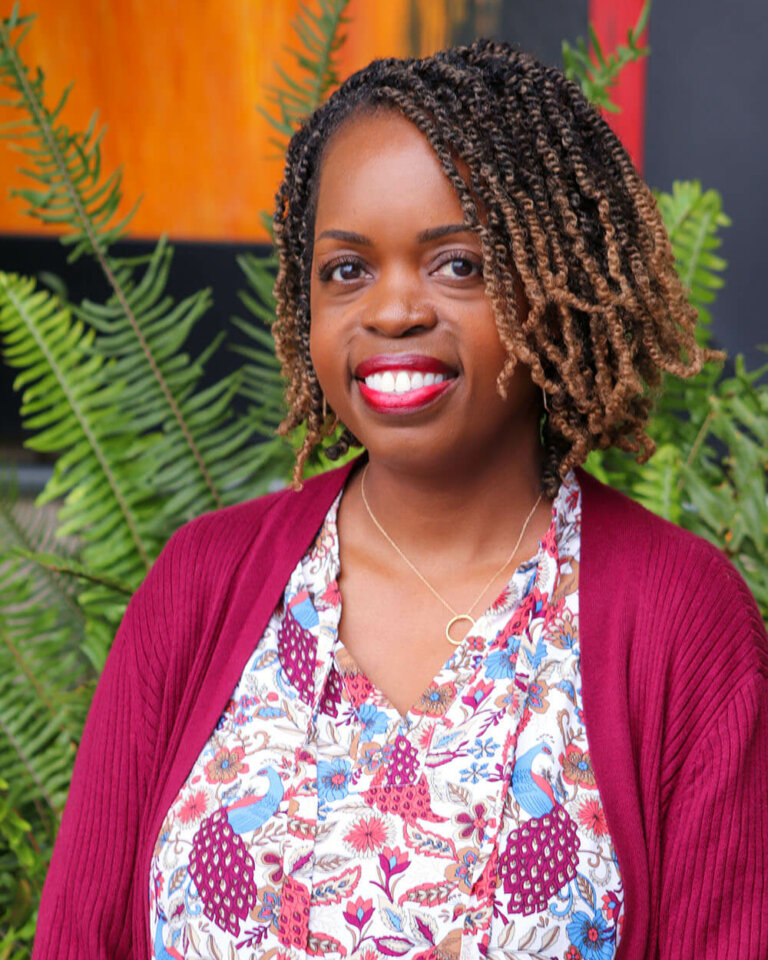
Program Philosophy
The WNS academic program is continually evolving to prepare students for the world of tomorrow. Based on current brain-research, grounded in project-based experiential learning, and blending in traditional elements, our curriculum allows students the space, flexibility, and support to design and shape their own understanding of our global community.
DISCOVER WNS
Elementary School
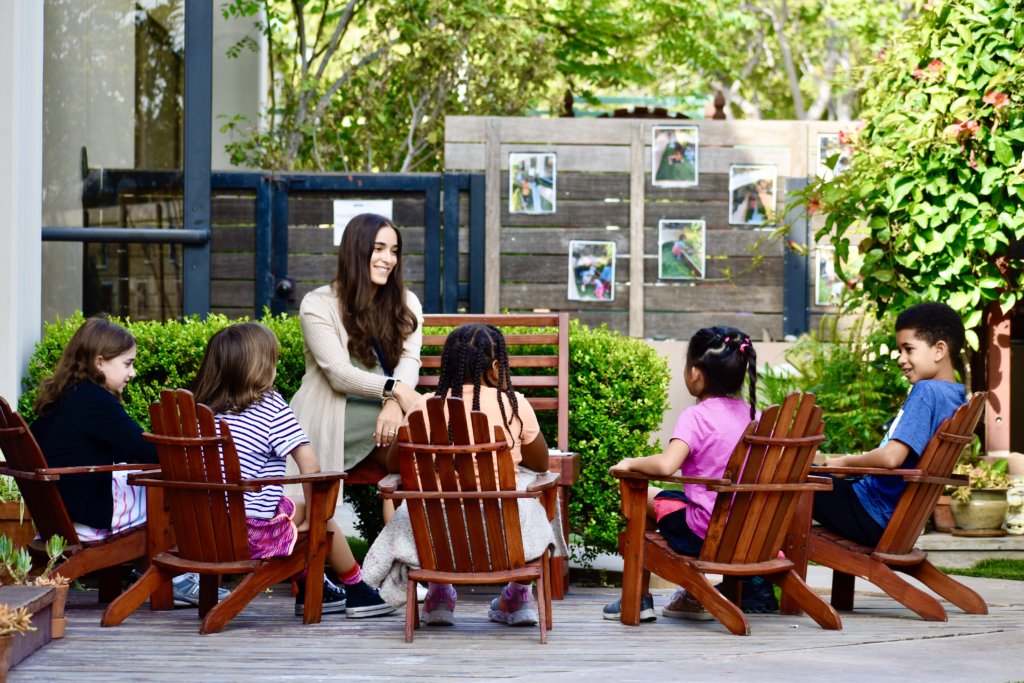
CURRICULUM
The roadmap to academic excellence
The WNS elementary program for grades 1-4 includes the core academic subjects of reading, writing, mathematics, and social studies as well as specialized classes such as science, art, music, Spanish, physical education, and computer science.
WNS utilizes a co-teaching model, with two credentialed teachers in each classroom, totaling four collaborative teachers per grade level. Social-emotional learning is integrated throughout the elementary curriculum. The co-teaching model allows for adaptations to be made to the curriculum to better serve student learning styles and achievement levels while keeping instructional goals consistent across the grade level.
Projects That Come To Life
Elementary school studies are grounded in a project-based learning approach that allows students to apply their learning in authentic ways. Student ideas and experiences create an innate desire to learn and practice core skills.
Mathematical thinking, along with written and verbal communication becomes critical when first graders create businesses for WNSville (pictured right).
Precision and organization in narrative and persuasive writing are necessary as second graders determine what it means to be a Changemaker.
Reading and research skills form the foundation of the westward movement in third grade and global studies and student research projects in fourth grade.
Fifth graders dive into identity and culture with their Cultural Fair, and learn what it means to put solutionary work into motion with their Sustainabiity Project, which will be built upon in middle school. Learning is supported through differentiated instructional groups, using collaborative and individual practice to allow for growth and stretch at every level.
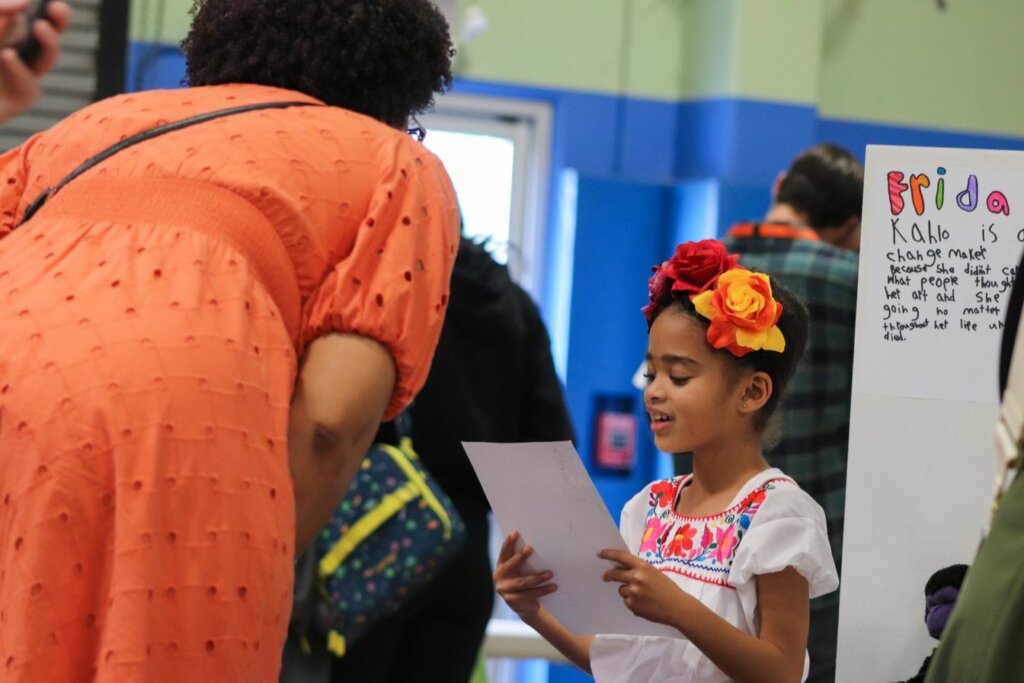
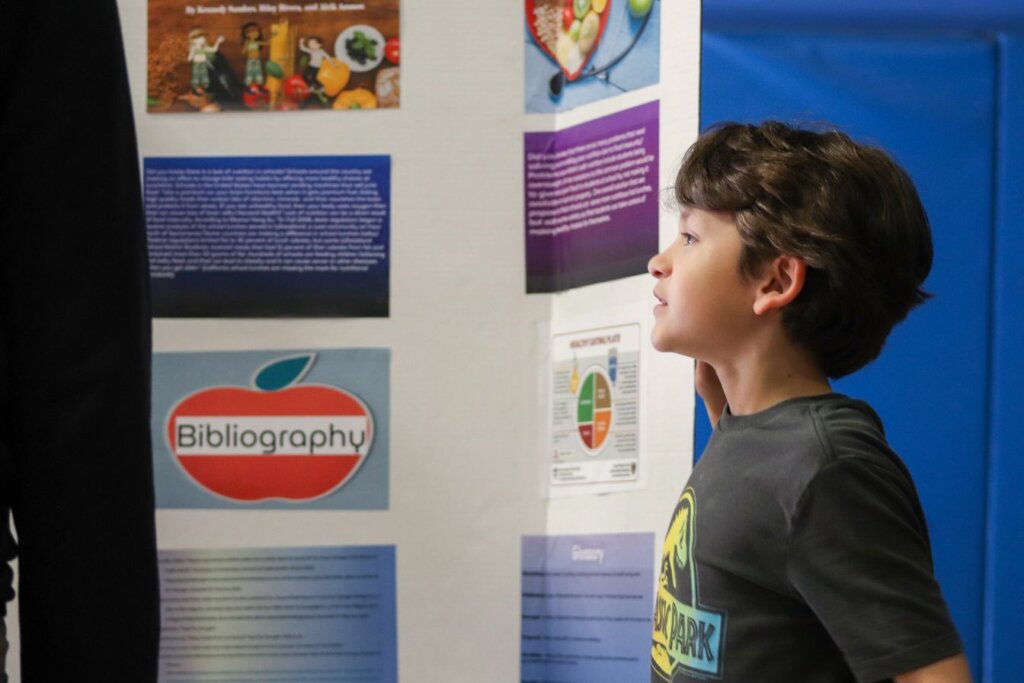
Curriculum Explorer
In the early elementary years, students are exposed to a wide range of literature such as picture books, chapter books, fiction, nonfiction, and poetry. Students are guided through the integration of phonics, spelling, vocabulary, and comprehension, delving more deeply into texts and building reading stamina. Comprehension strategies include retelling, sequencing, making meaningful connections, elements of a story, and the author’s intent. Together, teachers and students develop goals that are both challenging and within reach with constant feedback on their progress.
In the upper elementary years, reading instruction is focused on building a lifelong love of reading. Students are encouraged to explore a variety of authors and genres and are taught to make connections between the texts and their own lives and the real world. Students are encouraged to take ownership of their reading. In a variety of groupings, students explore various themes through different reading genres. A workshop-based approach allows students to connect more deeply with their literary choices through discussion, written analysis, and projects. Students also enjoy teacher- and student-led book clubs.
In the upper elementary grades, students grow and flourish as writers through the Writer’s Workshop model. They are taught to draw from their own experiences, to write engaging small moment narratives, informational texts, and persuasive speeches. Students understand that their “lives and thoughts are worth writing about.” Students use their writing notebooks to record mini-lessons on the conventions of writing and the writers’ craft. Students’ writing is published for a variety of authentic audiences.
The Singapore Math approach is used In the upper elementary grades, as students internalize how and why math is meaningful in their lives, moving beyond procedural knowledge to conceptual understanding. Students continue to employ concrete, visual, and abstract models to master the application of mathematical concepts. The curriculum is a project-based, interdisciplinary approach to the application of mathematical skills and concepts. Flexible groups are designed to meet all students’ needs, with emphasis placed on inquiry, problem-solving, and logical reasoning.
First Grade: Community. First graders create their own community, WNSville, in the spring.
Second Grade: Change Makers. Second graders study notable Americans and how students can impact the world around them.
Third Grade: Perspective Taking. Students learn about and engage in simulations that help them understand and internalize the experiences of Native Americans and pioneers.
Fourth Grade: Global Citizenship, The History of California.
The upper elementary science program continues to build on science and engineering skills. Students visit the science lab regularly to participate in authentic, project-based learning. Students develop and use models, engage in argument from evidence, and use mathematical and computational thinking.
Elementary grades develop locomotor, non-locomotor, and manipulative skills as well as body and space awareness through a variety of applications and activities. Dance, yoga, Capoeira, and gymnastics are among some of the units explored. The students also learn the form and function of their bodies through elementary anatomy and physiology units. In addition, sports skills and cooperative games are covered where teamwork and cooperation are emphasized.
Specialist Classes
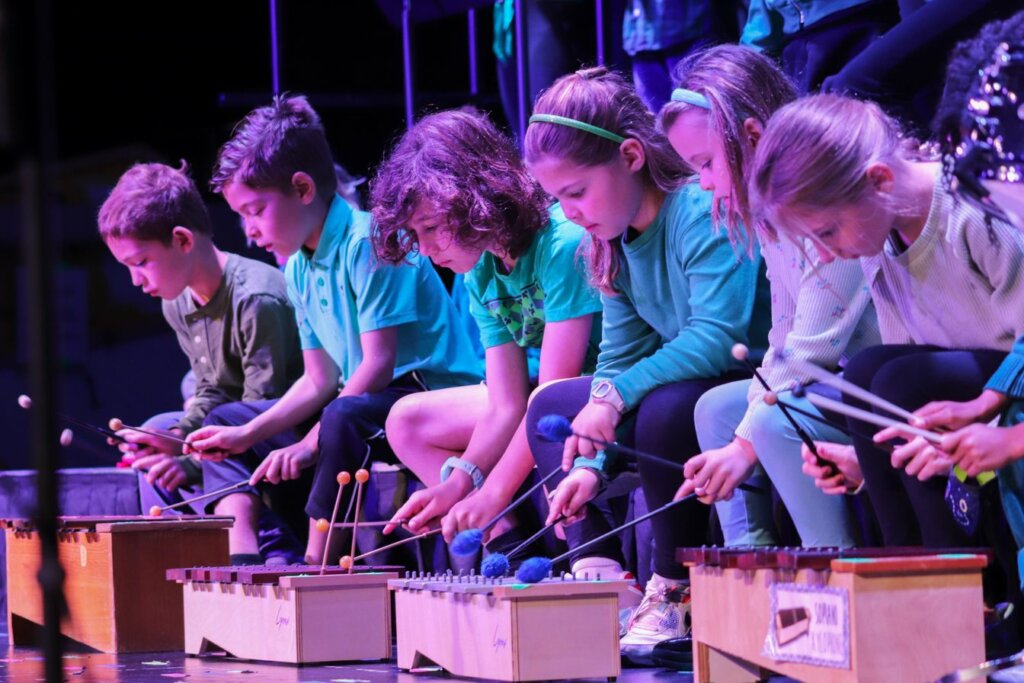
CURRICULUM
Music & Dance
Lower school students participate in an active music and dance program with a variety of musical enrichment opportunities, and performances. Highlights of the program include: Community dance, World music, learning about instruments in and sections of the orchestra, proper singing technique and stage presence, great composers and musicians, understanding music theory, conducting with a baton and understanding rhythm, playing a variety of instruments including percussion auxiliary and drums, piano guitar and more, improvisation, lyric analysis, and dancing. In addition, students build upon essential character skills including kindness, respect for self, others and property, team work, tenacity, and determination.
CURRICULUM
Visual Arts
The visual arts program values process, exploration, and problem-solving. Students learn through experimentation and discovery, and we encourage critical thinking and decision making. Projects include drawing, painting, weaving, ceramics, sewing, and much more. At WNS we love what goes up on our walls, but we value the process, learning new techniques, and diversity of thought when it comes to creating art.
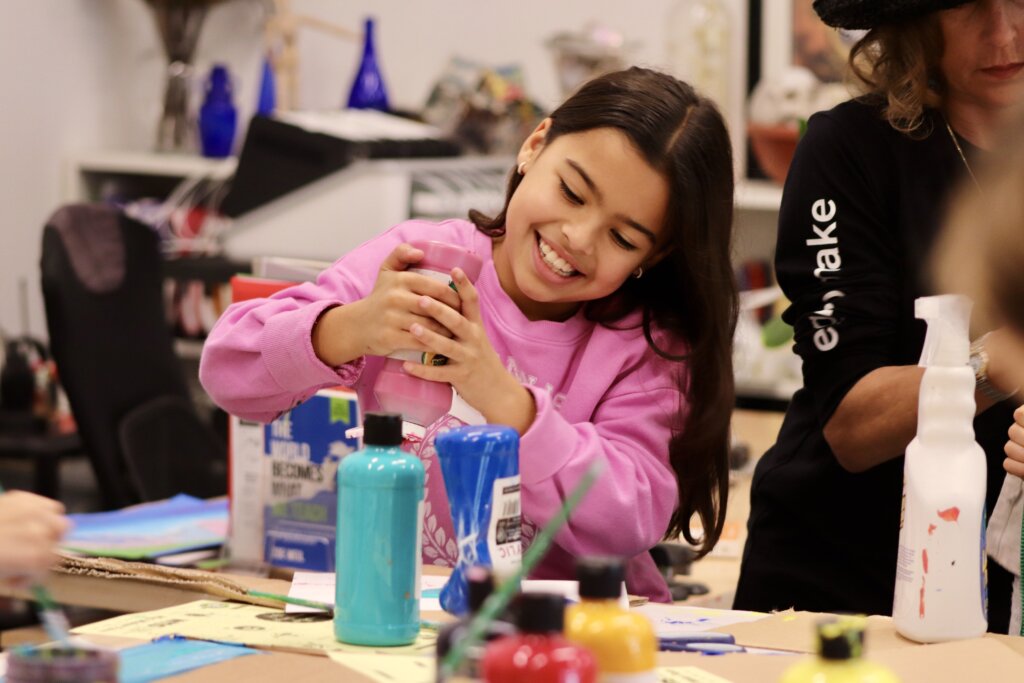
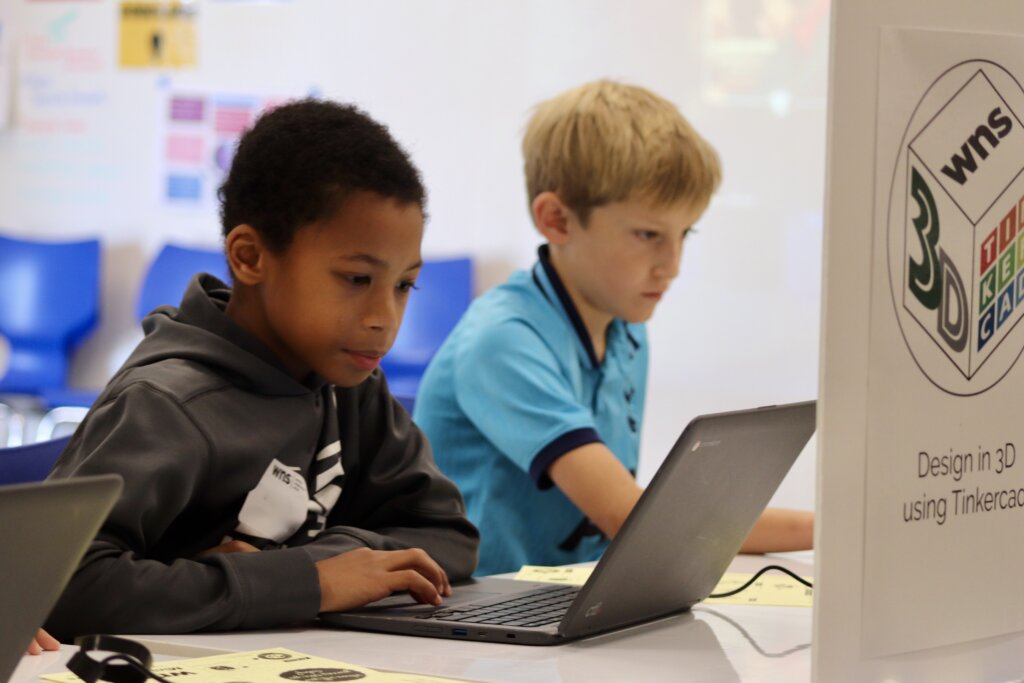
CURRICULUM
Computer Science
Beginning in 1st grade, students have DCM (Design + Code + Make) class in our Multimedia Learning Center (MLC).
DCM focuses on introducing students to the design thinking process, computational thinking, and the maker mindset. Students build with their hands while also receiving an introduction to core programming concepts, research skills, and internet safety.
Take a deeper dive
For a more detailed look at our elementary school curriculum, check out the information below.




